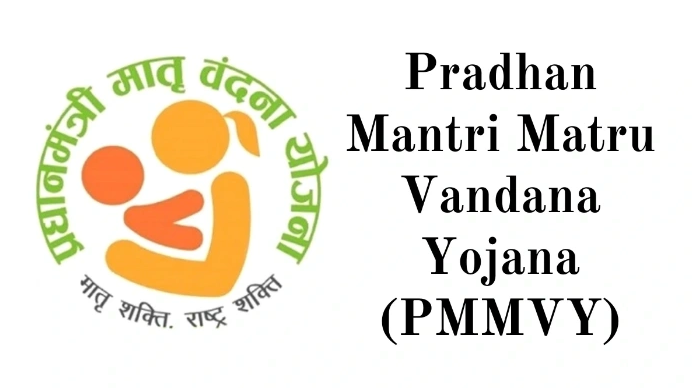More than 72.22 lakh pregnant women have been registered as beneficiaries under Mission Poshan 2.0 as of July 2025, according to the data available on the Poshan Tracker. Since the inception of the Pradhan Mantri Matru Vandana Yojana (PMMVY) on January 1, 2017, maternity benefits have been extended to over 4.05 crore beneficiaries across the country.
Minister of State for Women and Child Development, Savitri Thakur, shared this information in the Lok Sabha today while highlighting the government’s ongoing efforts to strengthen maternal health and nutrition, especially among vulnerable groups, including tribal communities.
To support maternal health and reduce instances of anaemia and low birth weight among mothers, several key initiatives are being implemented under the National Health Mission (NHM). These include Surakshit Matritva Aashwasan (SUMAN), which assures dignified, quality healthcare for every woman and newborn, and Janani Shishu Suraksha Karyakram (JSSK), which guarantees free deliveries, including caesarean sections, along with transportation, diagnostics, and medicines in public health facilities.
The Pradhan Mantri Surakshit Matritva Abhiyan (PMSMA) continues to provide assured antenatal care to pregnant women on the 9th of every month. Its extended strategy further supports high-risk pregnancies through additional visits and incentivization. Postnatal care is also being enhanced, with a focus on early detection of danger signs among new mothers and incentivizing ASHAs for timely intervention.
Monthly Village Health, Sanitation and Nutrition Days (VHSND) at Anganwadi Centres ensure outreach services related to maternal and child care in coordination with the Integrated Child Development Services (ICDS). Additionally, iron and folic acid supplementation and deworming are being provided to pregnant and postnatal mothers to address anaemia. Educational tools like the Mother and Child Protection Card and the Safe Motherhood Booklet are also being distributed to guide women on nutrition, danger signs, and available schemes.
The government’s flagship Anemia Mukt Bharat (AMB) strategy continues to address anaemia among women and children through a comprehensive life-cycle approach. It includes iron and folic acid supplementation, deworming, awareness campaigns, mandatory fortified food, testing and treatment, and interventions targeting non-nutritional causes such as malaria and hemoglobinopathies.
Under the 15th Finance Commission, various nutrition-related programmes including Anganwadi services, Poshan Abhiyaan, and the Scheme for Adolescent Girls have been merged into Mission Saksham Anganwadi and Poshan 2.0. This umbrella scheme aims to break the intergenerational cycle of malnutrition by adopting a life-cycle approach. Supplementary nutrition is being provided for 300 days a year to children aged 6 months to 6 years, pregnant women, lactating mothers, and adolescent girls in aspirational districts and the North-East. For pregnant women and adolescent girls, Take-Home Ration (THR) is provided, ensuring 600 calories and 18–20 grams of protein along with essential micronutrients.
The government has also focused on leveraging digital technology for effective monitoring. The Poshan Tracker app, launched in March 2021, enables real-time data collection and monitoring of services at Anganwadi Centres. Available in 24 languages, the platform tracks daily attendance, nutrition delivery, growth monitoring, and early childhood care activities. SMS notifications are sent to beneficiaries for registration and THR delivery to ensure transparency.
To strengthen last-mile delivery, the Ministry of Women and Child Development has implemented a Facial Recognition System (FRS) for the distribution of THR. This system, made mandatory from July 1, 2025, ensures that only registered beneficiaries receive the intended support and also strengthens accountability among field workers. Beneficiaries can now access records of the services they’ve received through the Poshan Tracker’s Beneficiary Module, which also includes educational videos on key maternal and child health practices.
For grievance redressal, a multilingual toll-free helpline number (14408) has been set up. Grievances are monitored and resolved at multiple administrative levels, with visibility provided to district and state officers through the Poshan Tracker dashboard.
Capacity building is being carried out under the Poshan Bhi Padhai Bhi initiative, with training conducted by the Savitribai Phule National Institute of Women and Child Development. As of July 31, 2025, over 5.81 lakh Anganwadi workers and more than 41,000 supervisors and officials have been trained across the country. Additionally, the National e-Governance Division (NeGD) is conducting hands-on training and workshops on the use of the Poshan Tracker application at the field level.
In a related development, the PM JANMAN Mission launched by the Ministry of Tribal Affairs is targeting the development of 75 Particularly Vulnerable Tribal Groups (PVTGs) across 18 States and a Union Territory. Under this initiative, 2,500 Anganwadi Centres have been approved for construction to improve outreach and nutrition services in remote tribal regions.
To further uplift tribal communities, the Dharti Aaba Janjati Gram Unnat Abhiyan (DAJGUA) aims to ensure saturation coverage of tribal families in majority tribal blocks. As part of this intervention, the Ministry of Women and Child Development will establish 2,000 new Saksham Anganwadi Centres and upgrade 6,000 existing ones between 2024–25 and 2028–29.










